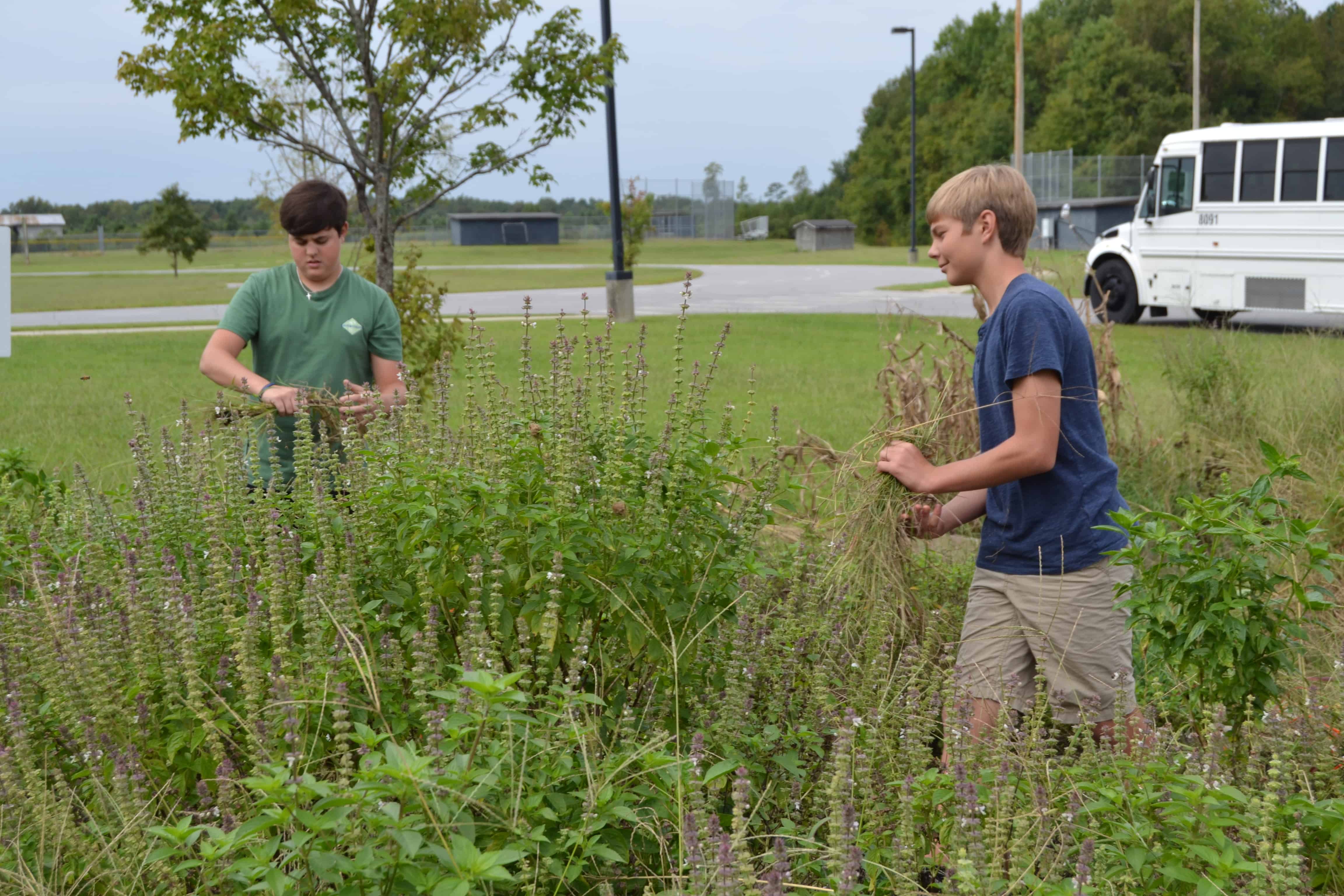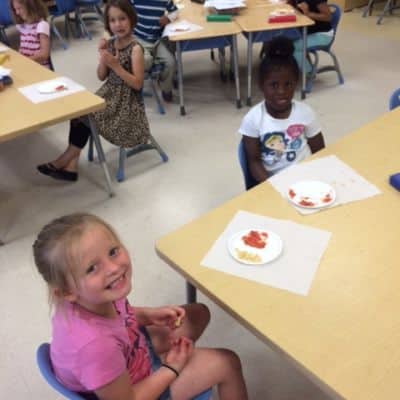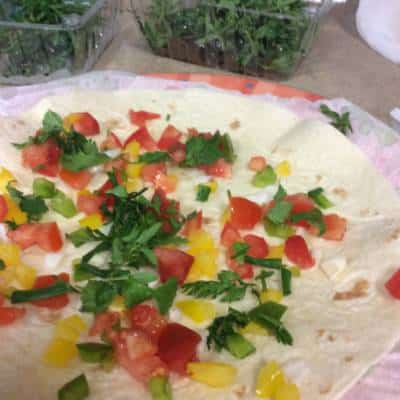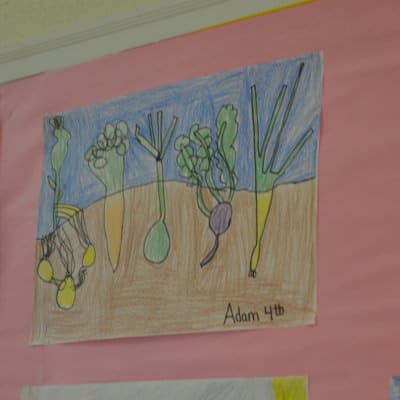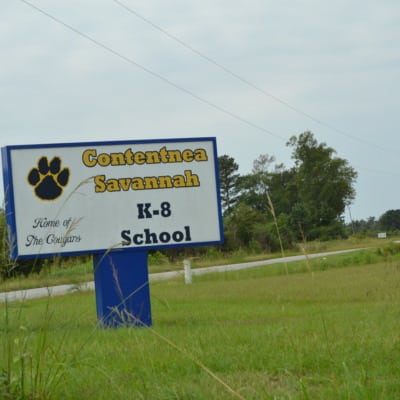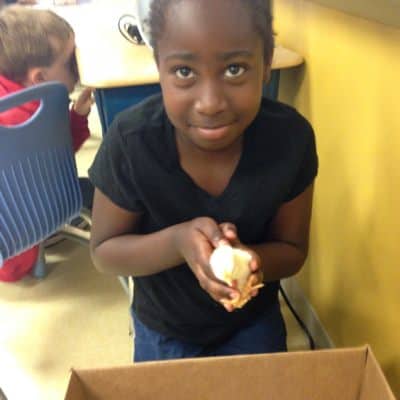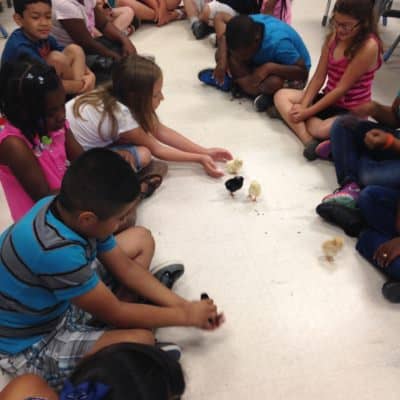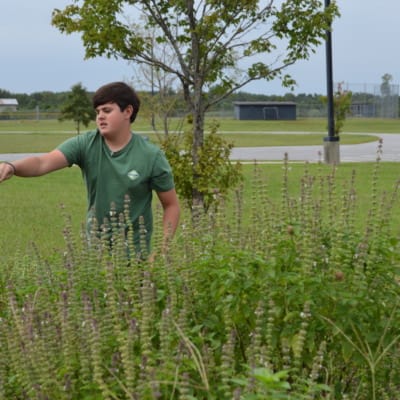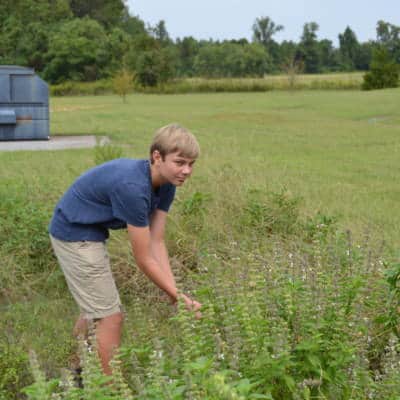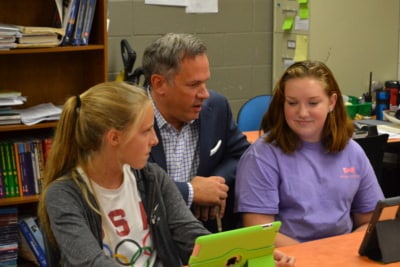Last year, Angela Hathaway’s second-grade class at Contentnea-Savannah K-8 School had vegetable quesadillas, vegetable soup, and salsa at a highly-anticipated class party. But the food was more than a break from bookwork or tests — it was the result of months of planting, learning, and making an essential connection on where food comes from.
The gardens, which were funded by the N.C. Farm Bureau’s Ag in the Classroom grant, were themed so that the kids could have an end-goal in mind from the beginning. A student is reminded that she is planting this tomato — and helping it grow — so that she can eventually make salsa.
Becky Hines, who also works part-time for the N.C. Farm Bureau, is the ag teacher at the school in Kinston. She teaches both introductory and intermediate agriculture courses and biotechnology to middle school students.
“It’s great that down here we can teach them little things,” Hines said, stressing the importance of starting agriculture education early. “We can piece little things together like this. And then once they get to middle school, they can really learn a lot more about it through the ag-education program.”
Contentnea-Savannah has brought a new focus to agriculture in their school over the last couple years. Through a few local funders, they’ve started Project D.I.G. — which stands for discover, investigate, and grow. Outside, there are gardens that are split between classrooms. They’re used to incorporate agriculture into the curriculum as much as possible.
“That one little three-by-three plot of land has brought so much into their lives,” Hathaway said. She said students are thrilled to go chew on an oregano leaf, find caterpillars, or release toads into the garden that they grew from tadpoles.
Just last year, Hines — who used to teach science — started offering agriculture courses and created a Future Farmers of America club for 7th and 8th graders.
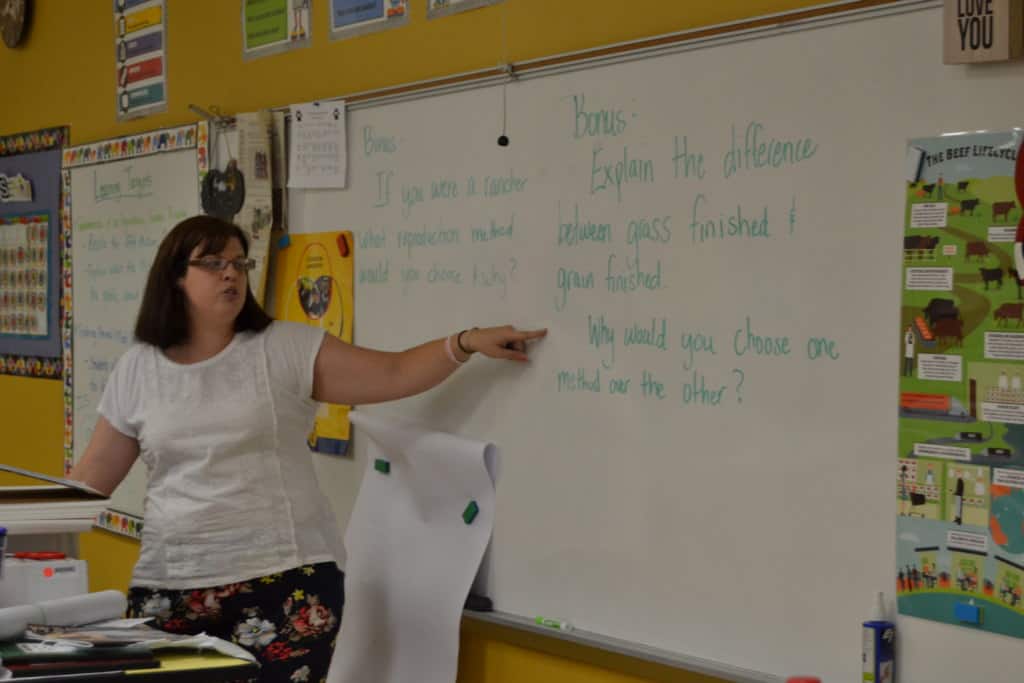

And then there are the several Farm Bureau Ag in the Classroom grants that are sprinkled throughout the school. Teachers across the state can apply to receive up to $500 to fund projects from beekeeping to greenhouses. At Contentnea-Savannah, these grants are funding Hathaway’s salsa garden, materials for Hines’s biotechnology class, and a new project coming later this fall: a chicken coop.
Hathaway teamed up with a local 4-H club last year to let her students participate in an embryology project. They incubated eggs and watched them hatch. They kept the chickens in boxes in the classroom until they were too big and messy.
But with the help of the entire community, the chickens will be able to stay with the students much longer this year. In November, Contentnea-Savannah middle schoolers will begin to design the chicken coop as a STEM project. Then, Lenoir County’s Young Farmer and Rancher group will help with construction. Finally, second graders will learn about the animal life cycle as they witness chickens grow. Once they are fully-grown, which Hines says takes about three months, she will demonstrate the slaughtering process to her animal science class.
“It teaches them that chicken is more than a package at the grocery store or a yellow box at Bojangles,” Hathaway said. That connection is one that can be hard to make. Hines said parents often aren’t educated on the agricultural roots of the place they live either. Students at Contentnea-Savannah, Hathaway said, are unknowingly surrounded by an agricultural community.
“These kids see chicken houses every day, but they don’t really understand what they are,” Hathaway said. “So this helps answer their questions.”
Hines hopes cohesive agricultural education throughout elementary and middle school will help to inspire students to pursue careers in the agriculture industry — one that is struggling to attract young people. Contentnea-Savannah is a STEM school. Agriculture is a huge part of science, Hines and Hathaway agreed, that is often overlooked.
“It’s not just the production side,” Hines said. She said she’s making sure students are exposed to the wide variety of jobs available in the agricultural industry.
“It’s good that they know that they can still have active roles in agriculture even if they don’t want to be a farmer,” Hines said.
